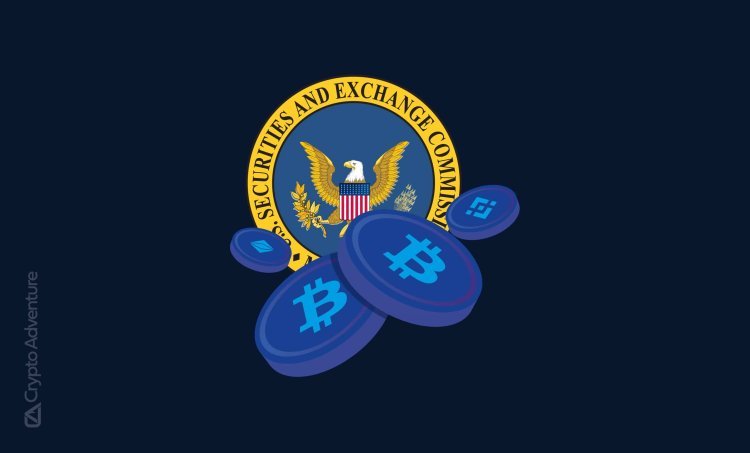SEC Revises Position on Crypto Assets, Admits Missteps in Terminology
The U.S. Securities and Exchange Commission (SEC) has recently faced significant criticism over its regulatory approach to cryptocurrencies, particularly concerning its use of the term “crypto asset securities.”
In a recent development, the SEC has clarified that its use of the term was not intended to label digital tokens themselves as securities. This admission was included in a footnote of the SEC’s revised complaint against Binance, prompting scrutiny and raising concerns about the clarity and consistency of the SEC’s regulatory framework.
Historically, the SEC has pursued action against crypto companies for allegedly dealing in unregistered “crypto asset securities.” However, in its latest legal filing, the SEC explained that this term was intended as a “shorthand” to describe the broader context of contracts, expectations, and understandings surrounding these assets, rather than defining the assets themselves as securities. The agency noted that it has consistently maintained this position, referencing previous cases such as the one against Telegram.
Despite this, the SEC acknowledged that its terminology has caused confusion and stated it will cease using the term “crypto asset securities” in this manner moving forward. This shift comes amid ongoing legal battles, including the high-profile case against Binance, which involves allegations of multiple violations of U.S. securities laws.
The SEC's recent filings have expanded the scope of its accusations against Binance, now including additional tokens such as Cosmos Hub, Axie Infinity, and Filecoin. This move intensifies the regulatory scrutiny on the crypto exchange.
Industry leaders have expressed frustration with the SEC’s evolving stance. Paul Grewal, Chief Legal Officer at Coinbase, criticized the SEC’s inconsistent application of regulatory terms and actions. He highlighted that the SEC’s latest admission contradicts its earlier classifications, accusing the agency of misleading courts and the public.
Stuart Alderoty, Chief Legal Officer at Ripple, also condemned the SEC’s revised position. He argued that the term “crypto asset security” was effectively a fabrication and called for greater transparency in the SEC’s regulatory approach.
In light of these developments, some speculate that Binance and other companies may find themselves navigating a shifting regulatory landscape. The SEC’s latest strategy involves focusing on the broader framework of contracts and investor expectations rather than specific token classifications under the Howey test—a legal standard used to determine securities status.
SEC Chair Gary Gensler has been a central figure in this regulatory approach, asserting that many cryptocurrencies should be classified as securities and thus fall under SEC oversight. His stance has sparked debate within the crypto community and drawn political scrutiny.
As Binance and its co-defendants prepare to respond to the SEC’s amended complaint by October 11, 2024, the outcome of this case could significantly impact the future of cryptocurrency regulation in the United States.







